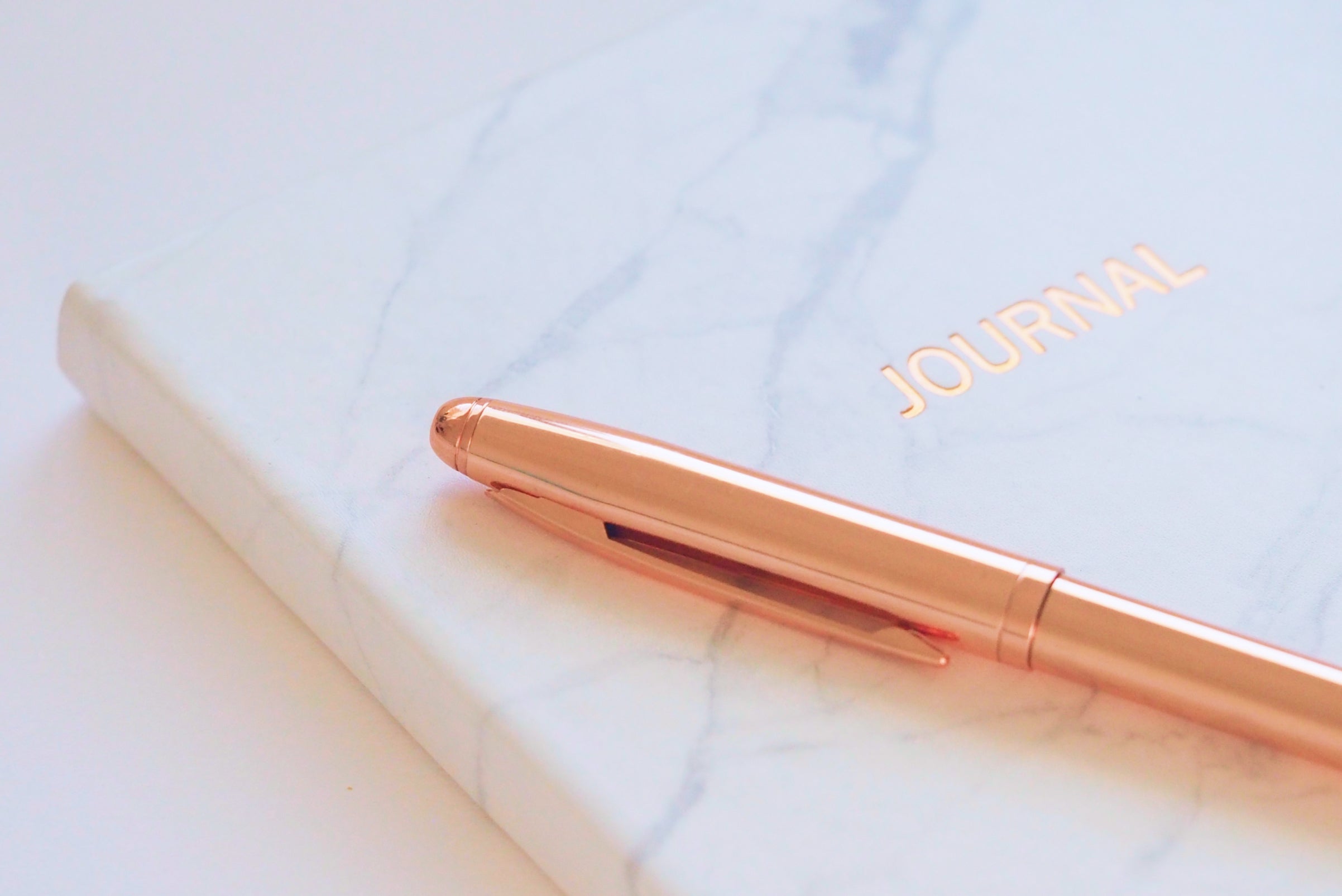How often do we get to hear from people around us that we should not keep things locked in our minds? As it builds up pressure, affects your mental health and makes you suffer while lowering the quality of your life.
We always get told that it is important to share your thoughts with someone, be it an immediate family member like your parents or siblings, or a close friend or colleague whom you trust with things personal to you. If you aren’t able to share it with anyone, then the general idea is to write your thoughts down and lift the pressure from your shoulders.
But the question we are left facing is - does it work? Why is it so important to take out thoughts and write them down? How will it even change anything and how can it benefit you? These questions could cloud our minds, and we don’t feel comfortable about this.
But if you have heard or thought about this idea, and you label it as useless even before trying it, you may want to continue reading. If you understand and have proper knowledge about this concept, then you will be able to not only improve your mental but your overall health.
What is Journaling?
First, this idea of writing down thoughts, feelings and expressing your ideas, observations and experiences is called Journaling.
This concept doesn’t have any set in stone rules or specifications as such. It depends on the individual writing, how they would want to go ahead with it. You can write a journal daily, or whenever you feel the urge to write something down. Also, you can write about anything you want to. From any tiny detail you catched during the day, to personal feelings about someone.

Most of the people maintain a diary and note down the things that surround their lives and take place daily. But journaling can be done in several different ways, and the method you choose can depend on your needs, on your personality or your current feelings.
What are the different methods of Journaling?
Journaling is a flexible concept without any rules and bonds. You can practice it whenever you like. The idea behind the concept is to make you feel relaxed and comfortable. Also, there are a few methods that you can use, as these allow you to express yourself freely and in the best way possible. Some of these methods include:
Crispy One-Liners
This is one of the best methods for those who are quite busy in their daily lives and are looking to manage journaling within their limited time. The idea here is straight and simple, and all you need to do is write down a line in your journal every day. The line could be as short or as long as you want. After some time, you can turn back the pages and read all the lines to notice how you and how you live your life has changed.
Sketching and Doodling
Doodles are a fun and very effective way of Journaling. When you are not able to find words to describe your thoughts and feelings. Draw it out! Take some time each day and sketch your thoughts in a journal.
Dreams do come true!
This is a creative and very powerful way of journaling. It consists basically of jotting down all your dreams. This can be both fun and insightful as this helps in keeping the track of all the creative thoughts that our subconscious minds have. It is important to do this every morning as soon as you wake up so that you don’t forget what you visualized in your dreams.
Get, Set, Goal!
Goal Journaling is a targeted form of journaling, where your motive is to write down all kinds of goals you have each day. Set new goals and even write down the steps to achieve them. After several months or even years, you can turn back and reflect on how your goals, priorities, and actions have impacted your plans.
Write it out!
This is the most common and widely followed form of Journaling. It does not have any rules or guidelines. All that you are needed to do is to write down whatever you want in any form, way, shape, or pattern about anything or anyone. The main idea here is freedom of expression.
Answer my Question!
Question Journaling consists of a direct pattern to make it easier for people to follow. It includes writing a set of questions and responding to the same questions every day. The questions may include – What is the best thing that happened today, what is the worst thing that happened today, what is the best thing I noticed today etc. This helps in providing insights about yourself which can be very helpful in personal growth.
These are only some of the most common ways of Journaling, but there can be hundreds of different methods. Each one has the same motive, that is to get you to write down your thoughts, taking pressure off your mind and providing you various other benefits.
You might now be wondering what these ‘various other benefits’ of Journaling are? Well, Journaling can be very useful.

Top Therapeutic Benefits of Journaling
Some people refer to Journaling as a therapy. This is because it has various therapeutic benefits for your health. It is a simple yet greatly effective way of solving a lot of your problems and improving your overall health as a byproduct of it.
Stress Buster
Stress is a common occurrence that we face in our everyday lives. But stress can cause multiple problems and affect your physical, emotional as well as mental well-being. It is very important to alleviate stress and reduce it as much as possible.
Journaling can be a very useful stress-busting tool. If you can develop a habit of journaling, then you can reduce the effects of stress on your body by a good margin. Journaling ensures that you write down all the stressful experiences that you face, and thereby start to manage them in a better and healthier way going ahead.
It has recently been discovered in a study that those who indulge themselves in Journaling for 3 to 5 times, 15 minutes a day for an overall period of 3 to 4 months tend to have balanced blood pressure and notice various other improvements in their everyday lives.
Memory Booster
Journaling ensures that you remember things and write them down. Once it becomes a habit, you can notice that your memory becomes a bit sharper and your mind is better at retaining things since all the clutter is removed from it.
Journaling also helps in improving cognitive processing, which is a direct result of the increase in the capacity of the brain to retain memories clearly for longer periods.
Improves Immunity
This might come as a huge surprise for many, but it is actually true. It has been established that expressing your thoughts regularly and freeing up your mind has a direct impact on your immunity.
Journaling improves the functioning of your immune system, which further leads to increased immunity and less exposure to diseases. Writing down your thoughts strengthens your immune cells, helps in healing wounds faster, combats some liver diseases, and improves the functioning of the liver as well as lungs. It can even reduce the symptoms of asthma and related problems.
Fights Depression
Depression is widely known to be one of the worst enemies for our mental health. It’s a slow killer and degrades the life of anyone who goes through it. It is very important to fight this silent killer as early as possible. Though there are many ways to fight depression, it has been found recently that journaling is one of the easiest yet most effective methods for dealing with depression.
Journaling your thoughts and ideas not only works towards releasing some unnecessary pressure that builds in the mind, but it also makes the individual more optimistic. It makes you a good communicator and allows your thoughts and feelings to flow instead of getting stacked up. It eventually stops the release of stress, the main threat that leads to depression.

Promotes Happiness and Self-Care
Ask anyone what they want the most. Whatever answer comes up, it leads towards a common denominator – happiness! We all want to be happy in our lives, but challenges in our daily lives make it difficult to achieve.
We can always learn to see the best out of everything and be happy in most, if not all, situations. Journaling can be very handy here, as it ignites the feeling of happiness and self-care. We usually get so busy in our daily lives that we stop paying attention to ourselves. However, journaling helps us to reserve time for ourselves, express our thoughts, and create a healthy balance between work and life. It ignites individuals to give importance to those aspects of life that they enjoy, including their hobbies. This eventually leads towards happiness that isn’t just temporary.
Final Words
Journaling is the modern-day form of self-therapy for our minds and mental health. There are multiple options out there to improve mental health and the quality of our lives, but there is none as simple as journaling.
Just like it is advised to eat healthy food and drink Alkaline Water to have a healthy body. Journaling can do the same job to our minds. Due to the lack of rules and the freedom of expression, it is very easy and can be done via numerous methods.
Most mental health experts and medical professionals advise journaling as a therapy to improve health and live a quality life. This is because it is very easy to begin and has widely proven benefits. Many are still doubting it, but it is only after you begin doing it that you understand and observe the positive changes that it brings.
Grab hold of a journal, and get started journaling now! Write with freedom, express yourself, speak out, draw it up, or do it as you like. All we hope is that when you are done, you have a smile upon your face!






